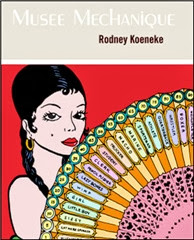
Been spending time with Paul Wegener's silent classic, Der Golem: Wie Er in der Welt Kam (1920). (That's Wegener as the Golem at the left.)
The Golem hasn't slipped under the cultural skin the way Frankenstein or Nosferatu did. He's sort of a bad cinematic bet—robotically slow, with a silly stone pageboy and beer keg torso that endow him with a strong underdog appeal. I'm intrigued by how willfully 'anti-cinematic' the film is: a study in heavy doors, massy walls (to separate the Jewish ghetto from imperial Prague, and the Rabbi's daughter from the sexual intrusion of the randy blonde courtier, Florian), close Expressionist interiors, and the Golem himself, awkwardly hominid, barely ambulatory: all clay, no breath. He's a sculpture trapped in a time-bound form.
The effect is weirdly syrupy and liturgical, like everyone's moving underwater. Time thickens and becomes nearly physical: there's barely a moment in the film where you're not aware of light being pushed through emulsions. That Wegener, Penal Colony-style, entered his own creation to play the Golem adds to the appeal—the auteur as misunderstood monster, disappeared into his own film.










